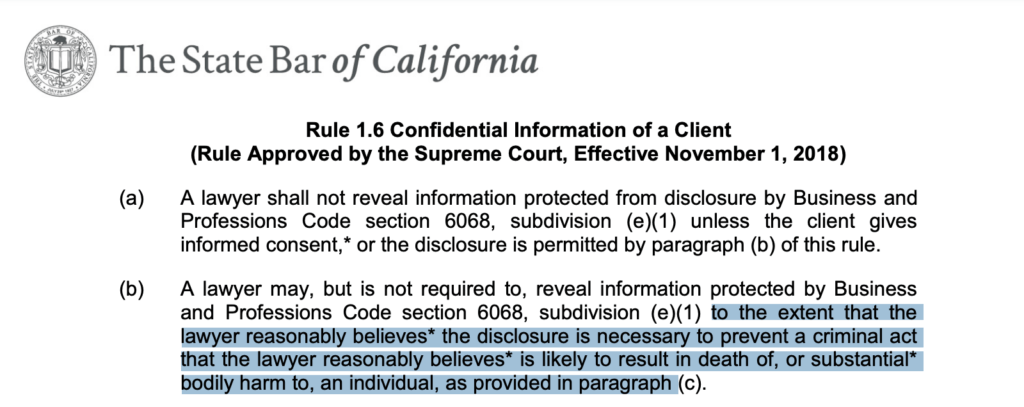In the dynamic and often unpredictable world of startups, the safeguarding of sensitive information is not just a priority but a necessity and sometimes necessitates a confidentiality agreement. As technology startups and entrepreneurs navigate the complex waters of business formation and intellectual property protection, the role of legal counsel becomes increasingly vital. This brings us to a critical question faced by many entrepreneurs and tech startups in Los Angeles: Should they ask their startup technology attorney to sign a confidentiality agreement, commonly referred to as a non-disclosure agreement (NDA)?
The Inherent Confidentiality of Attorney-Client Communications

Before delving into the specifics of NDAs, it’s crucial to understand the existing legal framework that governs communications between a startup founder or entrepreneur and a licensed California attorney. Under the California State Bar rule of ethics, specifically Rule 1.6, all communications with a client are deemed confidential and privileged. This rule stipulates that such information can only be disclosed if the lawyer reasonably believes it’s necessary to prevent a criminal act likely to result in death or substantial bodily harm.
In the context of business discussions, particularly those involving entrepreneurship, tech startup business launch, company formation, intellectual property protection, and contracts for business services, it’s highly uncommon for such conversations to trigger the exceptions outlined in Rule 1.6. Therefore, the bar to breach attorney-client confidentiality and privilege is set exceptionally high, offering entrepreneurs and startup founders a substantial degree of confidence that their discussions with their Los Angeles business startup attorney will remain secret and confidential.
Comparing NDAs with Attorney-Client Privilege
While Confidentiality Agreements are a common tool in the business world to protect confidential information, they do not offer the same level of protection as the attorney-client privilege in California. NDAs can be effective, but they are not impervious. For instance, the recipient of confidential information under an NDA may be compelled to disclose this information if subpoenaed by a court.
Conversely, a California lawyer specializing in startup and business law cannot disclose a client’s confidential information even under subpoena, unless the disclosure aligns with the exceptions to attorney-client privilege as per the State Bar Rules of Ethics 1.6. This distinction highlights the robust nature of the attorney-client privilege compared to the relative vulnerability of NDAs.
The Verdict: Is a Confidentiality Agreement Necessary with Your Startup Attorney?
Given the stringent confidentiality inherent in the attorney-client relationship, especially in the context of California’s legal landscape, the necessity of a separate NDA between technology startups and their legal counsel is questionable. The legal protections afforded by the attorney-client privilege often surpass those offered by a Confidentiality Agreement.
For technology startups that are developing valuable business and proprietary assets, including research and development (R&D), the assurance that their discussions with a licensed California business startup attorney will remain confidential is significant. This assurance often negates the need for an additional confidentiality agreement or NDA with their Los Angeles startup attorney.
Moving Forward with Confidence
For entrepreneurs and tech startups, understanding the nuances of legal protection and confidentiality is crucial. While NDAs have their place in the business world, the attorney-client privilege in California offers a more robust safeguard for confidential communications.
If you’re navigating the complexities of starting a technology business and require legal guidance that respects and protects your confidential information, consider reaching out to a seasoned professional. For instance, David Nima Sharifi, Esq., offers confidential consultations to discuss startup legal and business affairs strategies, ensuring that your innovative ideas and business strategies are safeguarded every step of the way.
This blog post is for informational purposes only and does not constitute legal advice. For specific legal advice tailored to your situation, please consult a licensed attorney.

